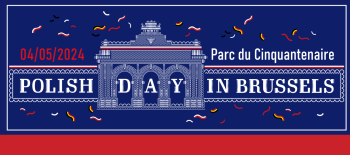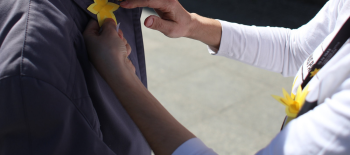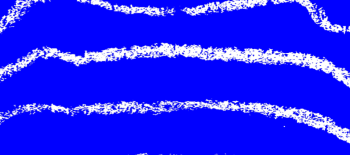Jan BOKSZCZANIN presents an almost exclusively Polish programme at the Bruges Organ Festival. This will provide audiences with the opportunity to (re) discover little-known names which they will nevertheless never forget.
PROGRAMME
Jean Sebastian Bach – Fantasia in G major, BWV 572
Francois Couperin – Tierce en taille
Wolfgang Amadeus Mozart – Fantaisie in F Minor, KV 608
Mieczysław Surzyński – Improwizacje nt. polskiej pieśni kościelnej “Święty Boże” (Improvisations on the Polish Sacred Song “Święty Boże”), op.38
Krzesimir Dębski – Letter to John-Paul II (world premiere)
Flor Peeters – Aria, op.51
Felix Borowski – 1st Organ Sonate (allegro, adagio, allegro con brio)
PRACTICAL INFORMATION
>>> St. Salvator’s Cathedral (Sint-Salvatorskoorstraat 8, 8000 Brugge) – see map
>>> Friday 28 July 2017 – 20:30
>>> €9
+++ the list of concerts is HERE
Jan BOKSZCZANIN
Polish organist, professor at the Fryderyk Chopin University of Music (Białystok pathway), Bokszczanin studied in the organ class taught by Joachim GRUBICH at the Fryderyk Chopin Music Academy in 2002. He then received a doctoral grant to study at the University of North Texas, supervised by Jesse ESCHBACH. He also took classes with Lenora McCROSKEY. He participated in master classes run by such renowned organists and pedagogues as Guy BOVET, James David CHRISTIE, Alexander FISEKSKY, Bernhard HAAS, Zsigmond SZATHMARY and Harald VOGEL. Jan Bokszczanin regularly gives concerts and performances in Poland and in many other countries. In addition, he is president of the “Ars Liberata” association.
Bokszczanin is the author of works on musiscology collected in a volume entitled Geneza i tradycje rosyjskiej muzyki organowej (Genesis and Traditions of the Russian Organ Music, Warsaw, 2001) and Główne tendencje w rozwoju rosyjskiej i radzieckiej muzyki organowej (Major trends in the development of Russian and Soviet organ music, Warsaw, 2012). Several publications, articles and publications of scores are dedicated to Marian SAWA, who was the subject of his doctoral thesis entitled Technika cantus prius factus w muzyce organowej Mariana Sawy (The cantus prius factus technique in the organ music of Marian Sawa) published in 2006 in Lodz.
Organ music in Poland
The first mentions of the organ in Poland date back to the XIIth century. Initially limited to the royal court, the instrument gradually spread across the whole country. From the XVth century onwards, one can trace the building of organs to large Polish cities such as Gdansk (Oliwa), Warsaw, Krakow, Poznan, etc. In parallel to the development of works of music, technical progress in the construction of instruments also increased. Alongside Polish production, we should highlight the fact that large numbers of Italian, German, Flemish or French pieces were also performed. In this dynamic, we can witness in its entirety the sense of cultural openness which characterised golden age Poland. One fact stands out in the story of Polish culture: the resurgence of the organ in the musical compositions of the XIXth century. August FREYER (1803-1883) – friend of Fryderyck CHOPIN – or Stanisław MONIUSZKO (1819-1872) and Mieczysław SURZYŃSKI (1886-1924) left wonderful scores for this instrument. At the end of the century, a new generation of composers took up Moniuszko’s torch, amongst them Władysław ŻELEŃSKI (1837-1921), who played a prominent role, and Feliks NOWOWIEJSKI (1877-1946). The organ did not become obsolete, far from it! The contemporary works of Tadeusz PACIORKIEWICZ (1916-1998) and Tadeusz MACHEL (1922-2003) – who, with hardly any reference being made, received special prizes for his string quartets at the Liège International Composition Competition in 1956 and 1959 – or Augustyn BLOCH (1929-2006) – who is probably the the most interesting Polish composer and organist of the XXth century, more than proved this.



